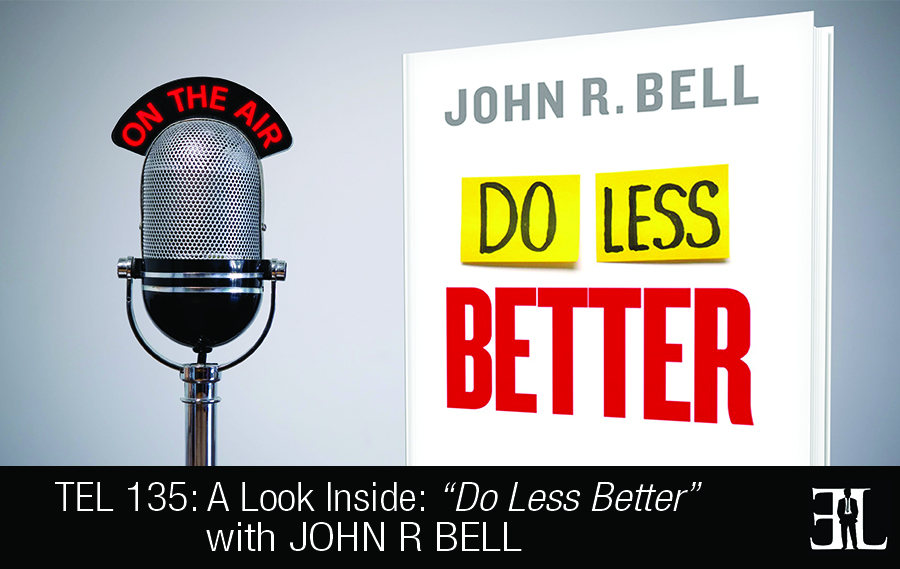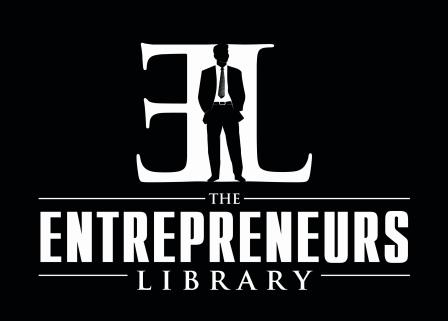A Preview of Do Less Better with John R Bell

A summary of things you should know about Do Less Better according to John R Bell:
Introduction
In this episode John R Bell takes a deep dive into his book, Do Less Better, where he explains why sacrifice in the right places cuts through complexity and clears the way to competitive advantage.
In his book Bell provides a tool-kit of road-tested strategies for keeping companies lean, creating cultures of innovation, and knowing when to expand and yet, remain streamlined. The goal of the book is to teach you how to “think smaller,” when everyone around you is firmly entrenched in the “do more” strategy in order to become more agile, adaptable, and resilient than your competitors.
This book is perfect for entrepreneurs who are struggling to outweigh the competitors in their market and need a new yet effective approach to reinvent their current strategy.
The Book’s Unique Quality (4:30)
It’s certainly not the first book on focus and nor will it be the last but I think the element that separates it from the rest is how people can successfully cut through complexity and achieve focus.
The Best Way To Engage (6:54)
I’ve written it to flow as a beginning to end read and I think that will benefit every reader.
The Reader’s Takeaway (16:16)
The most important takeaway is the fact that leaders and managers don’t have to keep doing more and more to be affective and successful. Doing less and doing it better is a viable strategy at all levels within the company.
A Deep Dive Into The Book (7:35)
I begin the book by establishing the breadth and depth of complexity, the fact that it’s pervasive. Complexity in business is a cancer that stifles and if you leave it unchecked it can bring a company to its knees so I establish that as the main problem. The other thing is that companies have chosen diversification as the means to grow and these seem to be the ones that suffer the most.
The second chapter I call The Steel and Steal of Strategic Sacrifice. The whole idea here is that the strategy is a steal because good strategies cost no more to develop than bad ones.
None of this happens without leadership so I move to a leadership chapter. It certainly helps when top management buys into the idea of doing less better and if top management does it can become the culture of the company.
From there we go into The Urgency for Action chapter. I suggest that it doesn’t matter whether you’re entrepreneurial or not, success comes from those who think like entrepreneurs. And until the digital age innovation was the way of the entrepreneur. Giant corporations have a habit of gobbling up competitors and dominating markets and in the process many of them have lost their competitive edge. I go through the reason for the complexity; I talk about the strategy being important and leadership leading the way.
Chapter six is for marketers but it will benefit every reader because I reiterate the power of differentiation and I titled this chapter KISS is not a Rock Band. If you want differentiation you have to ask yourself this question. What are you prepared to sacrifice to get it? You have to be prepared to give up a benefit or two or three.
That leads into branding which everyone knows is big business today and my chapter on it is about those who do it well and explains why others have lost their way.
Towards the end of the book I make it clear that there is more to clarity and coherence than cutting back product lines, markets, and projects. I make the point that coherent companies align every function and every aspect of their organization with their capabilities.
The last book is titled Regrets: I’ve had a few. In this chapter I share with the reader some of the regrets and mistakes I’ve made along the way so that you can learn from my mistakes.
NOTE: That was just a summary. To get the full deep dive, play the audio clip at 7:35
Notable Quotes From The Book (17:18)
“20% of the new initiatives deliver 80% of the rewards. Choose carefully and you save money, reduce complexity, and ride the fastest race horses to the future. “- John R Bell
The Credibility/Inspiration Of The Author (0:36)
I am a retired CEO of a consumer packaged goods company that was sold to Kraft back in the 90’s. After the sell to Kraft I decided to become a management consultant and I did that until I retired about two years ago. By the time I hung up my hat I’d helped a couple dozen companies including Campbell Soup, Starbucks, and Interbrew. I love to write and still like to play games such as golf and tennis.
Earlier in my career I was faced with the challenge of turning around a near bankrupt company. This company had too many products, too many brands, and too many categories. So by closing or selling the majority of the brands we trimmed that company down to a shadow of its former self. We decided that we were going to be an expert in one category and at the time that happened to be coffee. By focusing on coffee and nothing else we were able to swim out of the raging river of red ink and we called that means to the end the do less better strategy. I describe that as the opposite of doing more with less or even doing more with more and that whole idea stayed with me for the rest of my career. So when I became a consultant I saw a similar pattern of unnecessary complexity in both troubled and successful businesses and I think today business complexity has reached pandemic proportions and there has never been a greater need for simplicity and focus.
Other Books Recommended By The Author (18:43)
The Art of Possibility by Rosamund Stone Zander and Benjamin Zander.
Outliers by Malcolm Gladwell
More Information About This Book and The Author
Buy Do Less Better by John R. Bell on Amazon today
Visit DoLessBetter.ca to learn more about the book and download a free chapter
Follow John R Bell on Twitter and Facebook
More Information About This Episode
Download the full transcript here (coming soon)
Listen on iTunes, Stitcher , and SoundCloud
Related books:
The Road to Reinvention by Josh Linkner
Aligning Strategy and Sales by Frank Cespedes
Invent Reinvent Thrive by Lloyd Shefsky
What did you like and not like about this episode? Fill out this one minute survey here.
 The Entrepreneurs Library
The Entrepreneurs Library














